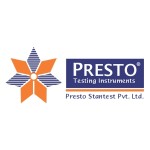Impact testing is a method of measuring the ability of a material to resist deformation, fracture, or damage when subjected to a sudden force or shock. Impact testing can provide valuable information on the failure behavior, toughness, and durability of materials under various loading and temperature conditions. Impact testing can also help to select the appropriate material for a specific application, verify the quality and compliance of the material, and optimize the design and processing of the material.
• Impact resistance tester: This is a type of impact test machine that is designed to measure the resistance of a material to impact, especially in terms of crack formation, breaking off, adhesion, and elasticity. An impact resistance tester can be used to test materials that are prone to impact damage, such as coatings, paints, films, and laminates. An impact resistance tester typically uses a falling weight with a hemispherical or knife-shaped end to create a dent or a cut on the material surface, and measures the force and depth of the impact.
Each type of impact tester has its own advantages and disadvantages, and can be suitable for different materials and applications. Therefore, it is important to choose the right type of impact tester for your material testing needs, based on the following factors:
• The type and properties of the material: Different materials have different impact behaviors and require different test conditions and accessories. For example, metals are usually brittle and require high-energy impact tests, while plastics are usually ductile and require low-energy impact tests. Similarly, different materials may have different specimen shapes and sizes, and require different grips and fixtures to hold them securely during the test.
• The purpose and scope of the test: Depending on the purpose and scope of the test, you may need different levels of accuracy, repeatability, and functionality from your impact tester. For example, if you are testing for basic quality control, you may only need a simple and economical impact tester that can perform a single test with a single parameter. However, if you are testing for advanced research and development, you may need a sophisticated and expensive impact tester that can perform multiple tests with different parameters, and provide more data and analysis.
• The test standards and specifications: Depending on the industry and application, you may need to follow certain test standards and specifications that prescribe the type and configuration of the impact tester, as well as the test procedure and data interpretation. For example, if you are testing metals, you may need to follow ASTM E23, ISO 148, or other metal testing standards. If you are testing plastics, you may need to follow ASTM D256, ISO 179, or other plastic testing standards.
Choosing the right type of impact tester for your material testing needs is not an easy task, but it is a crucial one. By considering the factors mentioned above, you can make an informed decision that will help you to evaluate the impact behavior of your materials accurately and reliably, and improve the quality and performance of your products. To know more about the Impact testing Machine offered by Presto Group, you can visit their website or contact them at +91 9210 903 903. You can also download their latest product catalogue cum company profile from their website.





.png)
Comments